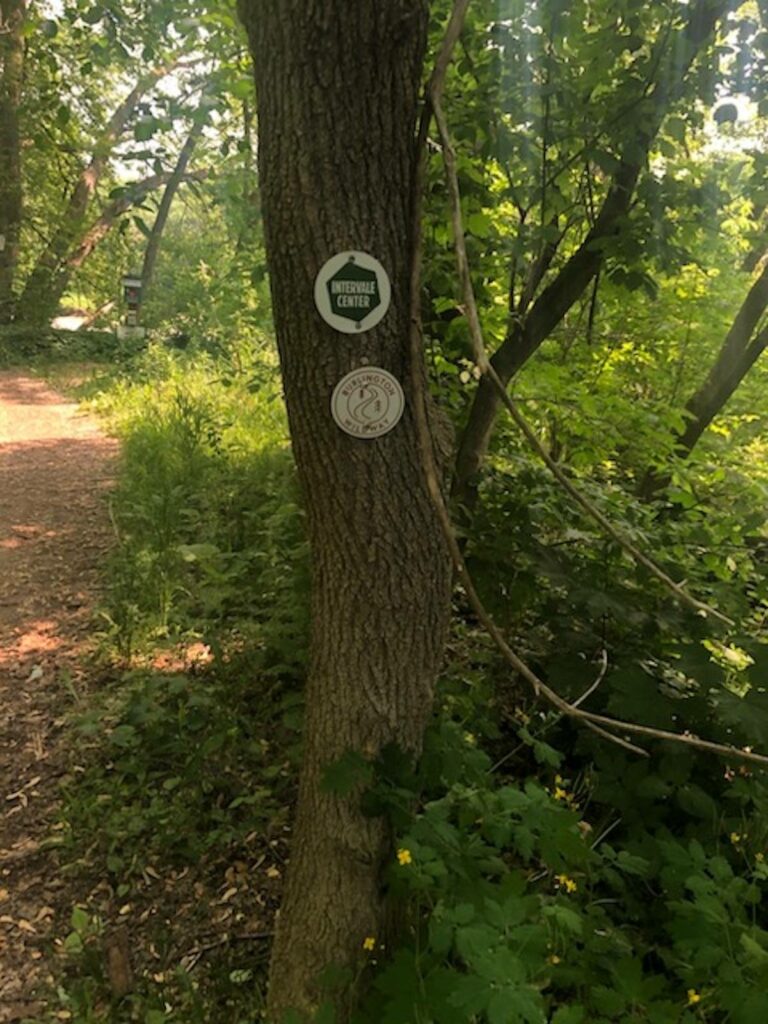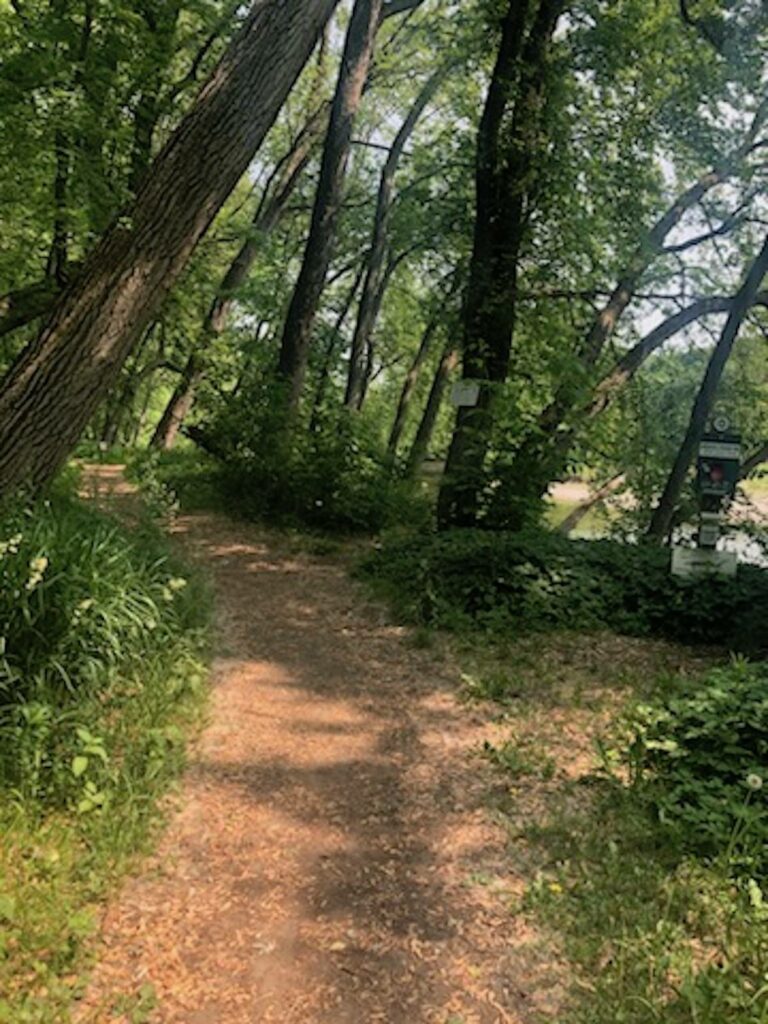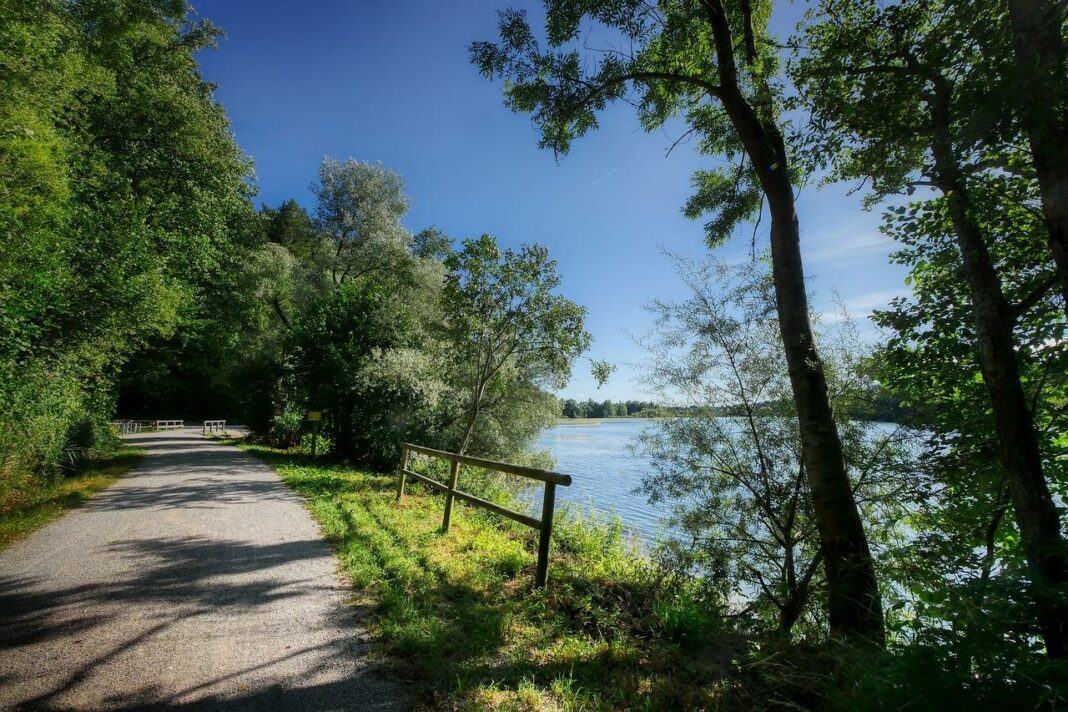A volunteer program in Burlington, Vermont trains volunteers to maintain wild spaces.
It was in the depths of winter in Vermont when, longing for spring, I discovered that the Intervale Center, a local network of hiking trails I enjoy throughout the seasons, was seeking volunteer trail stewards. Since I am always looking for ways to help support and enhance natural spaces, I dove head first into the online training through Burlington Wildways.
The Intervale’s location between the Winooski River and Lake Champlain has always held a special place in my heart. It’s a gorgeous mix of farms and trails, but perhaps most intriguing is the fact that, after centuries of being farmed, the area served as a city dump from the 1930s to the 1990s. Here and there, the observant trail explorer can spot vintage car parts peeking around the roots of trees. A local entrepreneur led a community cleanup, which restored soil health and inspired the germination of organic farms, gardens, and year-round recreation. But with all of this activity and public use comes the need for maintenance. Duncan Murdoch, the Intervale’s Natural Areas Stewardship Coordinator, had participated in a trail stewardship program when working as a horticulturist in New York City, and he thought something similar could work here as well. Turns out he was right.

Murdoch developed the Burlington Wildways trail stewardship program after collaborating and consulting with Rock Point, a center of the Episcopal Church in Vermont. Rock Point stewards 130 acres of publicly accessible conserved lands and already had a similar system in place. After securing the buy-in of the Burlington Parks and Recreation Department and the Winooski Valley Park District, the trail stewardship program launched in 2020. By 2022, fifty-two volunteers were logging an annual 484 reported hours in the program, working across the wildways at the Intervale Center, Rock Point, Riverwalk/Salmon Hole, and McKenzie Park.
Burlington is a diverse city, home to many newcomers. Zoe Richards, a wildlife biologist and Executive Director of Wildways, shared an anecdote from one such newcomer who joined the trail stewardship program and used it as a tool to learn about their new home. The routine of stewarding every Sunday became an anchor for them, Richards said.
While initially the stewardship training was designed to be in person, Covid forced a quick pivot to online, where it remains for flexible access. The primary responsibilities of a trail steward are to identify issues on the trail and, if possible, remedy them in the moment — restocking supplies at information stations, for instance, or picking up trash. When a steward is unable to solve an issue, they use an app to snap a photo and report it.

Having completed the online training, I showed up in June for the in-person component and received my Wildways Trail Steward button, making my role official! We all scanned a QR code to bring up the app so it could track our locations. Then we grabbed buckets and trash pickers, extra maps and trash bags, and were on our way, with Murdoch in the lead. The first information station needed maps and a dog poop bag refill. If we hadn’t had any on hand, I would have whipped out my phone, opened the app, taken a photo and added information related to the location and the need, alerting staff to the issue in real time. Even the simplest and smallest things we stewards do can make a big difference. “Seeing people picking up trash,” for example, “gives others permission to do the same,” Murdoch says. “It has become normalized as stewards are modeling the behavior that ‘everyone is doing this.’ [It shows that] this is a place where we care about our community.”
As we moved along the trail, Murdoch stopped occasionally to pull up knotweed, an invasive species (invasive management gets covered in the level II training). He also taught me some pruning techniques and greeted others on the trail, including some with dogs. There is ample signage noting that leashes are required, but both my online and in-person training had emphasized that the trail steward’s role is not to police the trails, but rather to be a friendly presence for visitors. When we returned to where we started, we placed our supplies back in the staging area. I am now welcome to steward the trails as often as I like and log my hours online.
Murdoch’s mission in life, he says, is “to connect people to nature through the senses, mindfulness, and also stewardship, and provide opportunities for people to connect to the land by deepening those relationships.” Mission accomplished.
To launch a similar program in your location, reach out to Duncan Murdoch (du****@in*******.org) at The Intervale Center.



